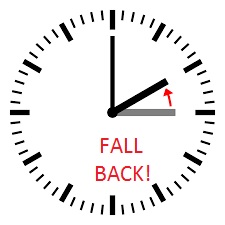 Perhaps you didn’t feel the time changing in the middle of the night, but this one-hour shift can be a gift or an unwanted intrusion, or a bit of both.
Perhaps you didn’t feel the time changing in the middle of the night, but this one-hour shift can be a gift or an unwanted intrusion, or a bit of both.
Earlier Nights:
For insomniacs, an earlier darkness is conducive to falling asleep. If you can allow your body to dictate to your mind that it is time to prepare for bed, you can benefit from some much needed restorative sleep. All of us who suffer occasional or chronic pain are aware that sleep helps with our ability to manage pain and lack of sleep impairs our ability to adapt to pain.
The downside of this earlier darkness is an abbreviated late afternoon of daylight for those who were used to walking or exercising outside.
Good Day, Sunshine!
If you have been noticing the dark mornings at bus stops and during your morning drive to work, you will now have daylight for your commute and for an hour or two before. This is great news for early risers, especially for those who work out in the mornings with walks and other activities like classes or at home routines. Working out in the morning tends to be the most advantageous time of the day and leads to a greater adherence to a workout regimen.
For those who awaken with the sun’s rays through the windows, utilize the extra hour to prepare a healthier lunch or indulge yourself in a breakfast that takes a bit longer to create. Better yet, do some stretching or light exercise to kickstart some healthy routines.
Parenting Woes:
Children’s bodies don’t understand that the clock has turned and can take a week or two to adjust to their “new” bedtime, even if the clock says exactly the same thing. Toddlers and babies are particularly sensitive to this time change and will still wake up and become sleepy at the old time, an unfortunate occurrence for sleep-deprived parents.
That extra hour of daylight can be beneficial for our bodies, especially for us in Michigan, as we are at the far western and northern end of our Eastern time zone in the U.S.

